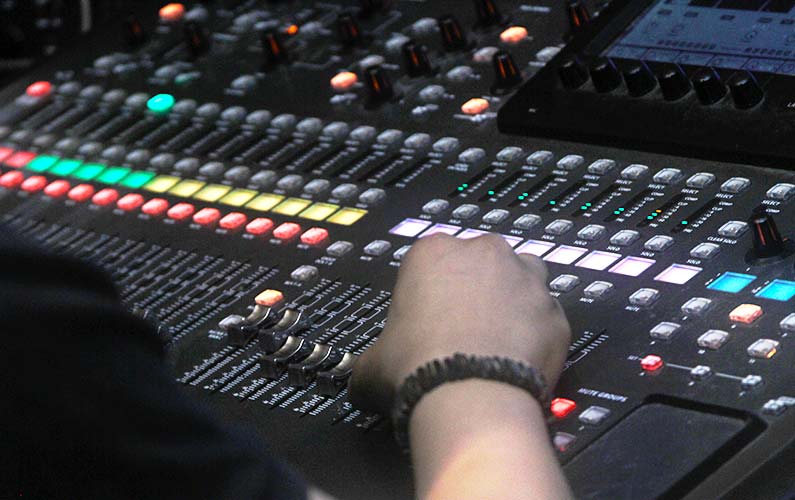A Journey Into Audio Engineering
More than 20 years ago, I first joined the music industry. I was focused on producing and creating music. My primary goals were to be a music producer, and an artist. My days were filled with composing new music, songwriting and recording my creations.
Music creation was my therapy. However, as I progressed in my creative abilities, I began to see that as the industry changed, it was becoming more challenging to make a solid living as an artist and music producer.
The first major “Golden era” for independent music creators was between the early 2000s up to the advent of music streaming. This was the period when independent artists and musicians had the most available opportunities to generate career sustaining income from their music.
Nowadays, the majority of income that financially successful, independent artists and musicians make is through touring/live shows and placements (getting their music played on tv, film, commercials, etc.).
Digital music streaming accounts for a VERY small percentage of the income that the average full- time independent artist or musician makes from their music. In fact, it takes roughly a million streams to generate $1,600 for the artist.
A Solid Career Path In The Music Industry
What has sustained my full-time career in the music industry, and what I believe will sustain the careers of many others, is audio engineering. The work of an Audio Engineering includes the processes of recording, editing, mixing and/or mastering audio projects.
The audio engineer is the person behind the scenes that records, and ensures that artists’ and musicians’ tunes sound great on a wide variety of platforms (i.e. car, ear buds, clubs, Spotify, etc.). They also ensure that your tunes sound competitive and high-quality like artists on major record labels.
Audio engineers must attain skills, experience and knowledge of the craft so that they know exactly how to record tunes in various genres. To achieve that high-quality, commercial-level standard, they must also know how to mix and master those tunes so that they sound great coming out of speakers, ear buds, car stereo systems, headphones, etc.
From the beginning of my own career, I was recording and mixing other folks’ music, as well as my own. I learned the majority of what I know over 20+ years of practical experience through trial and error. I also went through a 16-week apprenticeship program at a renowned commercial recording studio in Philadelphia, the city where I developed most of my audio knowledge and expertise.
The 10 Career Paths In Audio Engineering
When I decided that I needed to focus on a career-sustaining path in the music industry, it was clear to me that audio engineering was the best choice for me. The more that I learned about the careers that are available to audio engineers, the more excited I got. Many people question how to get work as an Audio Engineer, and the following is a list of the career potential in the field of audio engineering:
- Recording Studios
- Film Industry
- Television Industry
- Live Sound at concerts and events
- Podcast studios
- Audio book industry
- Churches
- College Audio/Visual Departments
- Corporate Audio/Visual Departments
- Radio Stations (mainstream, college, terrestrial and internet)
Amazing, right?! I just thought of audio engineers as the technical, behind-the-scenes folks working in recording studios. Yet, there are many more avenues for audio professionals than most people realize. In today’s digital world, audio engineers are in high demand.
I started training home studio owners in the art and science of Audio Engineering more than 15 years ago. Since that time, I have seen my students go on to work in many of the industries listed above.
Audio Engineering School Can Have An Impact
A person who is skilled in the field of audio engineering can carve out a solid career path in a number of ways. From working in film and tv, to live sound and radio, technology has made the achievement of quality audio more accessible than ever.
Getting some level of formal training can make a major impact on your ability to chart your own course in the technical side of the music industry. An aspiring audio engineer it is a degreed program, or at a hands-on, studio-based Audio Engineering and Music Production School, like the ones offered by Lil’ Drummaboy Recordings in Philadelphia, PA.
Have you considered embarking on a career in audio engineering? Were you aware that there were so many opportunities? Hopefully, this article leaves you with some food for thought, and inspiration for your own future. The sky is the limit!


I’m a Qualified Vocalist, I recently completed Masters in Vocal Music.
I play Piano and Guitar too.
I want to setup my own recording studio console to record my own composed songs.
That sounds like an excellent plan, Ajay! You can definitely do it!
Comment *I’d like to come for a tour , I had a phone meeting.
Thank You
Hello! You can set up a tour through our website.